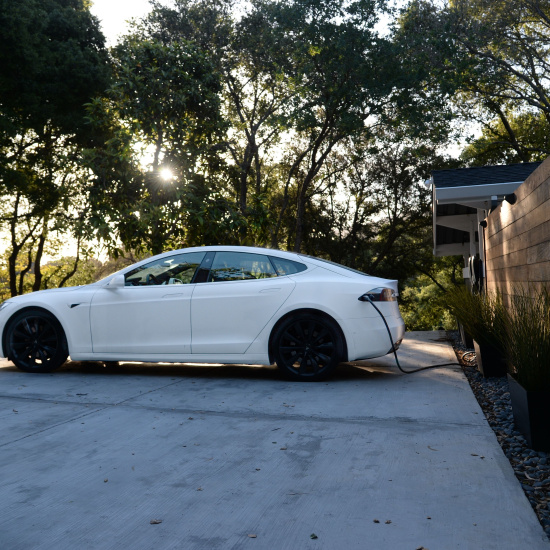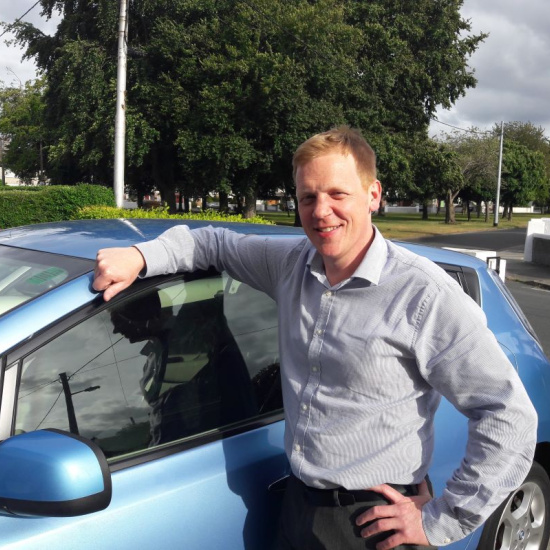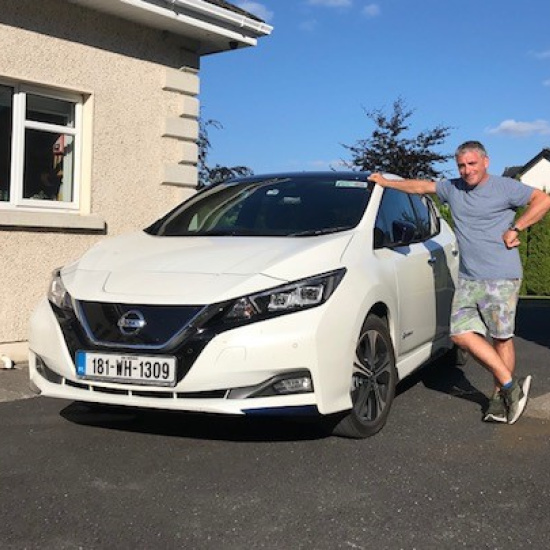EV Fleet Trial | SPeco Services
Shane Mooney, Environmental and Safety Advisor at SPeco Services, an Environmental Consultancy with offices in Galway and Dublin, describes his experience of driving an Electric Vehicle for business
SPeco Services Ltd are an Environmental Consultancy company. We applied to take part in the EV Fleet Trial, so we could explore the feasibility of using electric vehicles for our operations. We wanted to see what we could save in both carbon emissions and fuel costs.
We were given a Renault Zoe E-Tech 100% Electric for the duration of the 3-month trial. The vehicle was used to visit customers, and it was shared with other colleagues from time to time during the trial.
Charging and Range
This was my first experience with an EV. I drove it every day for the duration of the trial, visiting clients throughout Ireland. During this time, I covered a total distance of 5,370km, made up mostly of short trips around Galway city but the occasional 200km round trip. The Renault Zoe boasts a manual-listed range of 400km, as highlighted on their official website. However, this range is subject to multiple factors, including driving speed, outdoor temperature, activation of eco mode, and use of air conditioning and heating.
Among these factors, speed has the most significant impact on the Zoe's range. For instance, driving on motorways reduces the range to approximately 250km, as stated in the manual. The SPeco Services company has an EV charge point onsite, and this is where we charged the vehicle most the time. Occasionally we used public charge points. On days / weeks where I only had local visits around the city, I found I didn't have to charge the car during the day. Throughout the trial, I had to charge the car, on average, every three days.
Savings, Benefits and Challenges
The benfits were twofold: I managed to save €181 in fuel costs and I reduced Co2 emissions by 654 kg!
The driver's seat of the Zoe EV had a comfortable and ergonomic driving position which I liked and I was pleasantly surprised by the vehicle's impressive acceleration. EVs makes very little noise. It took me a few days to become accustomed to the silence! But this actually stood out as my favourite aspect of the car. I also liked that I could show my clients how seamless the transition is from petrol / diesel vehicles to electric.
For longer journeys, I had to ensure the car was fully charged at the start of the day. However, when I did have to stop and charge, the experience of being stationary for 40 minutes proved relaxing, which I didn't expect. When I charged the car at the SPeco's onsite charge point, the night-time was only 12 cent per kilowatt! So it makes sense for your business to have its own charge point - both for convenience and low costs.
Advice to Other Businesses
For other businesses considering switching to an EV for business, I'd make the following recommendations.
- ensure you have access to reliable charging infrastructure at your premises.
- evaluate the total cost of ownership, factoring in fuel and maintenance savings, as well as any incentives or tax benefits for electric vehicles.
- consider starting with a small pilot program to test the feasibility and gather real-world data before transitioning your entire fleet.
While certain logistical aspects require careful consideration, the overall advantages of electric vehicles align well with our organisation's sustainability goals. Currently, the most challenging aspect, from my perspective, is around ensuring the feasibility of long-distance travel without frequent recharging. The fast-charging 150Kw chargers will help speed up charging time if traveling over 250Km in a day.
Learn more about EVs for Business


